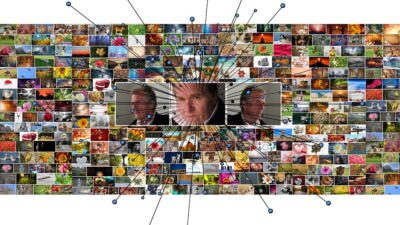Artificial Intelligence (AI) has transcended its nascent stages, evolving into a transformative force across various sectors. From healthcare to finance, AI is not just augmenting traditional processes but revolutionizing entire industries. This article explores some of the remarkable innovations driven by AI and their implications for the future.
1. Healthcare Revolutionized
Predictive Analytics in Diagnostics
AI algorithms are increasingly used for predictive analytics in healthcare, improving diagnostic accuracy. For instance, machine learning models can analyze vast datasets to identify patterns associated with diseases, enabling earlier detection of conditions like cancer. Radiologists now employ AI tools that assist in interpreting medical images, significantly reducing errors and improving patient outcomes.
Personalized Medicine
The advent of AI is paving the way for personalized medicine. By analyzing genetic information, treatment options can be tailored to individual patients, maximizing efficacy and minimizing side effects. AI-driven platforms analyze data from various sources, including clinical trials and patient histories, to recommend the most effective therapies.
2. Transforming Finance
Algorithmic Trading
In finance, AI has reshaped trading practices through algorithmic trading. High-frequency trading algorithms driven by AI analyze market trends and execute trades in fractions of a second, offering a competitive advantage. This has led to increased market efficiency, but also raises concerns about market volatility.
Risk Assessment and Fraud Detection
AI enhances financial institutions’ risk assessment capabilities. Machine learning models can analyze transaction patterns to detect anomalies and potential fraud in real-time. Banks and credit institutions use these technologies to improve credit scoring, ensuring better decision-making while reducing losses due to fraud.
3. Redefining Manufacturing
Smart Factories
Industry 4.0, characterized by smart factories, is driven by AI applications. These factories leverage IoT sensors and AI algorithms to monitor equipment health, optimize supply chain management, and enhance productivity. Predictive maintenance powered by AI substantially reduces downtime and operational costs.
Quality Control
AI enables real-time quality control in manufacturing. Advanced computer vision technologies scrutinize products on assembly lines, identifying defects far more efficiently than human inspectors. This ensures higher quality standards and reduces waste, leading to cost savings.
4. Enhancing Customer Experience
Chatbots and Virtual Assistants
Customer service is undergoing a transformation with AI-driven chatbots and virtual assistants. These tools offer 24/7 customer support, addressing inquiries and resolving issues in real-time. Companies leveraging AI-driven customer service report higher satisfaction rates and increased sales.
Personalized Marketing
AI is reshaping marketing strategies by enabling hyper-personalization. By analyzing consumer behavior, AI tools can recommend products that align with individual preferences and past purchases, significantly boosting conversion rates. This targeted approach not only improves customer experience but also maximizes marketing efficiency.
5. Advancing Transportation
Autonomous Vehicles
The transportation sector stands on the brink of a revolution, with AI at its helm. Autonomous vehicles utilize AI for navigation, real-time decision-making, and safety enhancements. Companies like Tesla and Waymo are testing and deploying AI-driven cars that promise to reduce accidents and improve traffic efficiency.
Logistics Optimization
AI is optimizing logistics and supply chain management. By analyzing data from various sources, AI can predict demand, optimize routes, and manage inventory levels. This leads to more efficient operations and significant cost reductions in logistics and transportation.
Conclusion
The innovations driven by AI are transforming industries and enhancing operational efficiency, improving customer satisfaction, and driving growth. As businesses continue to embrace these technologies, the potential for further advancements is immense. However, navigating the ethical considerations and challenges associated with AI implementation is crucial.
The journey of harnessing the power of AI is just beginning. As we look to the future, it’s clear that those who adopt and adapt to these technologies will not only survive but thrive in an increasingly competitive landscape. The transformative potential of AI is not just a promise—it is a reality shaping the world as we know it.
Embracing these innovations is not just about technological advancement; it is about creating a better, more efficient, and more inclusive future for all.



